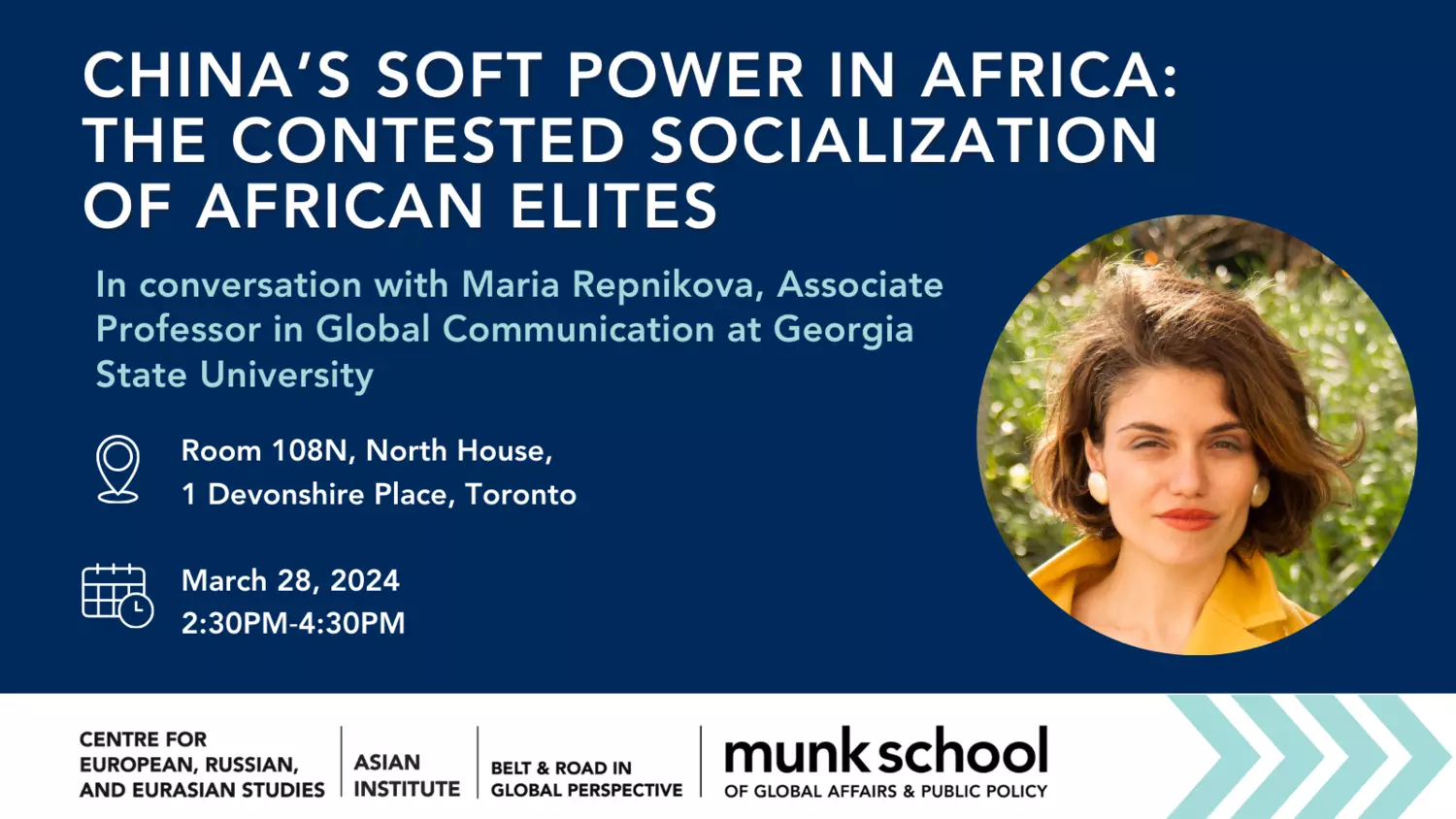
China’s Soft Power in Africa: The Contested Socialization of African Elites
March 28, 2024 | 2:30PM - 4:30PM
|
In-person
This event took place in-person at Room 108N, North House, 1 Devonshire Place, Toronto, ON, M5S 3K7
This talk presented the emerging themes from a larger book project on China’s relationship-building with African elites through training programs and immersive experiences sponsored by the Chinese government. Drawing on rich empirical data, including interviews and ethnographic observations in China and Ethiopia, this study challenges the popular depictions of China as exporting its model to developing countries. Instead, it demonstrates the dynamic and multi-directional co-optation, persuasion, and disciplining efforts aimed at African elites. The talk highlighted how these efforts yield both, a public acknowledgment and even promotion of China by the participants, as well as somewhat ambivalent private reflections about China and its future in Africa.
Maria Repnikova is an expert on Chinese political communication, an Associate Professor in Global Communication, and the inaugural William C. Pate Chair in Strategic Communication at Georgia State University. This year, she is also a non-residential Wilson China Fellow at the Woodrow Wilson Center. She has written widely on China's media politics, including propaganda, critical journalism, digital nationalism, and soft power. Dr. Repnikova is the author of the award-winning book, Media Politics in China: Improvising Power Under Authoritarianism (Cambridge 2017), as well as the recent, Chinese Soft Power (Cambridge Global China Element Series). Her public writings have appeared in the New York Times, Washington Post, and the Atlantic, amongst other outlets. Other than working on China, Repnikova does comparative work on information politics in China and Russia. Most recently, she has been researching and completing a monograph on Chinese soft power in Africa, with a focus on Ethiopia. Dr. Repnikova holds a doctorate in politics from Oxford University where she was a Rhodes Scholar. In the past, she was a Wilson Fellow at the Woodrow Wilson Center (2020-2021), a visiting fellow at the African Studies Center at Beijing University (2019), and a post-doctoral fellow at the Annenberg School for Communication (2014-2016).
Co-Sponsors: Centre for European, Russian, and Eurasian Studies; Asian Institute; and Belt and Road in Global Perspective